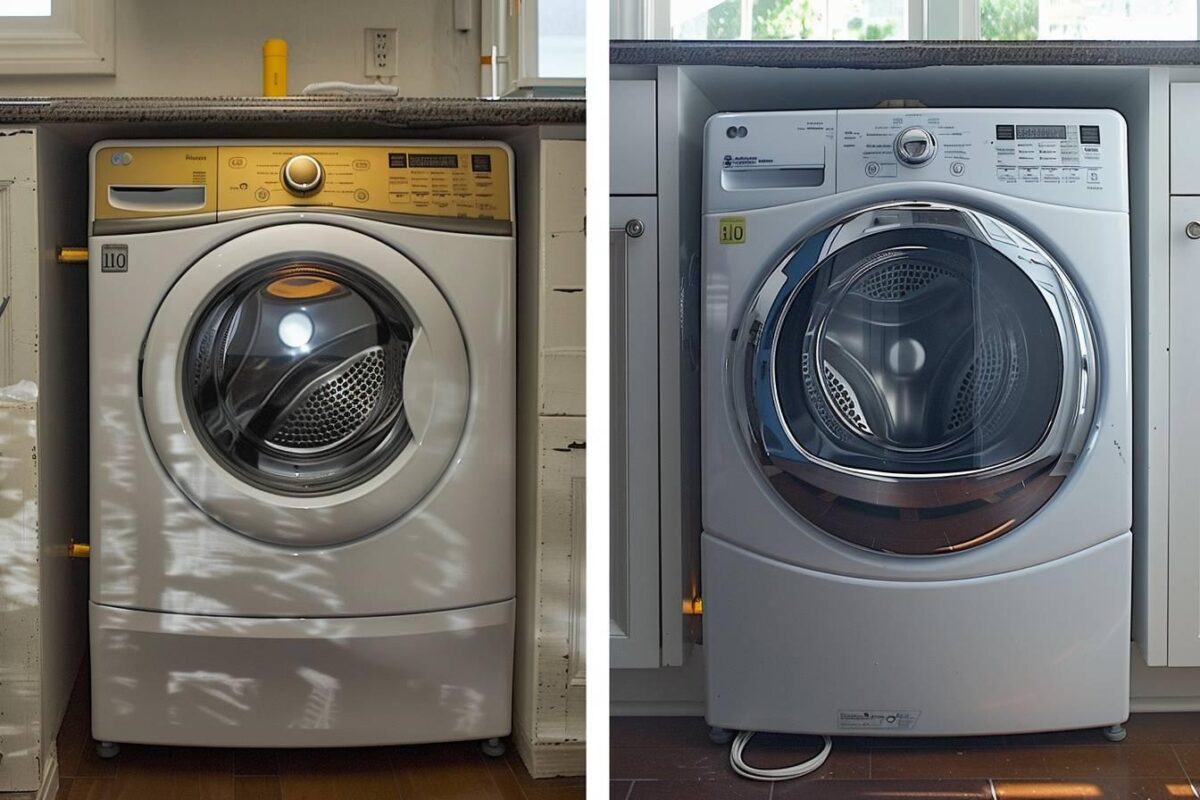Show table of content Hide table of content
When it comes to home appliances, understanding the difference between gas and electric dryer hookups is crucial for homeowners. Whether you’re moving into a new house or replacing an old dryer, knowing what type of hookup you have can save you time, money, and frustration. This guide will help you identify your dryer hookup and provide valuable insights into the differences between gas and electric dryers.
Understanding the basics of dryer hookups
Before diving into the specifics of gas and electric dryer hookups, it’s essential to understand the basic principles behind these appliances. Both types of dryers serve the same purpose : removing moisture from wet clothes using heat and air. The main difference lies in their power source.
Electric dryers rely solely on electricity to function, powering both the heating element and the drum. On the other hand, gas dryers use a combination of gas and electricity. The gas fuels the heating process, while electricity powers the control panel, light, and drum rotation.
Here’s a quick comparison of gas and electric dryers :
| Feature | Electric Dryer | Gas Dryer |
|---|---|---|
| Power Source | Electricity only | Gas and electricity |
| Initial Cost | Generally lower | Usually higher |
| Operating Cost | Typically higher | Often lower |
| Efficiency | Less efficient | More efficient |
Identifying your dryer hookup
Now that we’ve covered the basics, let’s explore how to determine whether you have a gas or electric dryer hookup. The process is simpler than you might think, and it primarily involves examining the area behind your current dryer.
Here are the key indicators to look for :
- Electrical outlet : Electric dryers require a special 240-volt outlet with a distinct four-prong plug. Gas dryers use a standard 120-volt outlet with a three-prong plug.
- Gas line : If you see a gas line (usually stainless steel or painted yellow) connected to a shut-off valve on the wall, you have a gas dryer hookup.
- Exhaust vent : Both types of dryers have an exhaust vent, typically an accordion-like duct that leads outside. However, gas dryers must have this exhaust pipe for safety reasons.
If you’re still unsure, consider consulting the model number of your current dryer. You can usually find this information on a label inside the door or on the back of the appliance. Look up the model number on the manufacturer’s website to confirm whether it’s a gas or electric model.
Pros and cons of gas and electric dryers
Understanding the advantages and disadvantages of each type of dryer can help you make an informed decision when it’s time to purchase a new appliance. Let’s explore the pros and cons of gas and electric dryers :
Electric dryers
Pros :
- Lower initial cost
- Easier installation
- No need for gas line installation
- Wider variety of models available
Cons :
- Higher operating costs in most areas
- Longer drying times
- Less energy-efficient
Gas dryers
Pros :
- Lower operating costs in most regions
- Faster drying times
- More energy-efficient
- Often gentler on clothes due to lower heat
Cons :
Home Improvement North America’s continent leaking rocks discovered by scientists
- Higher initial purchase price
- Requires professional installation
- Potential safety concerns with gas leaks
- May not be an option in all homes or areas
Making the right choice for your home
When selecting a new dryer, it’s crucial to consider your specific circumstances. If you’re replacing an existing dryer, the simplest option is usually to stick with the same type you currently have. However, if you’re moving into a new home or considering a switch, here are some factors to keep in mind :
- Energy costs : Compare the prices of gas and electricity in your area to determine which option will be more cost-effective in the long run.
- Availability : Ensure that your home has the necessary hookups for your preferred dryer type. Installing a gas line can be expensive if you don’t already have one.
- Environmental impact : Gas dryers typically have a lower carbon footprint due to their increased efficiency.
- Drying preferences : If you prioritize faster drying times, a gas dryer might be the better choice.
- Budget : Consider both the initial cost and long-term operating expenses when making your decision.
Remember, choosing between a gas and electric dryer isn’t just about personal preference. It’s about finding the right fit for your home, budget, and lifestyle. By understanding the differences between these two types of dryers and carefully considering your options, you can make an informed decision that will serve you well for years to come.
Whether you opt for a gas or electric dryer, proper maintenance is key to ensuring its longevity and efficiency. Regular cleaning of the lint filter, periodic checks of the exhaust vent, and timely repairs can help your dryer perform at its best, regardless of its power source. With the right knowledge and care, you’ll be well-equipped to keep your laundry routine running smoothly and efficiently.


